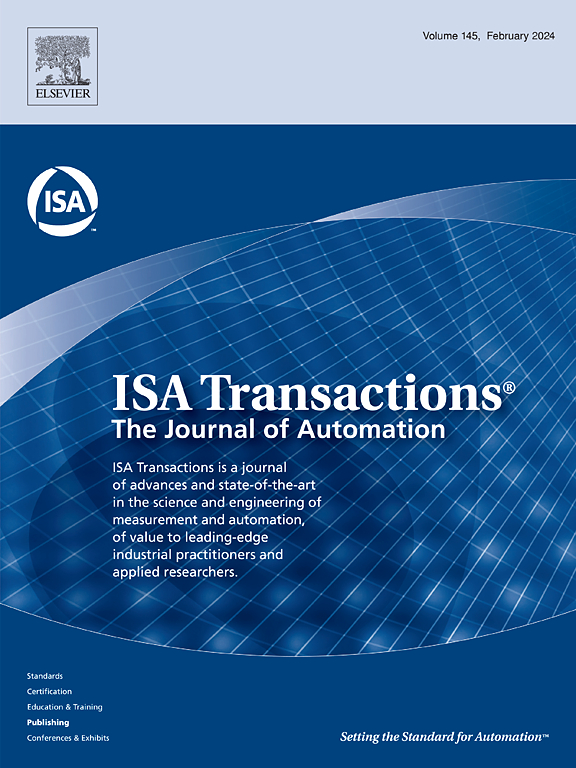无终止条件的非线性自触发MPC轨迹跟踪。
IF 6.5
2区 计算机科学
Q1 AUTOMATION & CONTROL SYSTEMS
引用次数: 0
摘要
本文采用模型预测控制策略研究了一类非线性离散系统的轨迹跟踪问题。与标准MPC策略相比,本文提出的MPC策略去除了终端条件,包括终端惩罚条款和终端状态约束。这种新颖的设计需要确定的参数较少,具有较高的实用性。此外,为了减少计算量,提出了一种利用相邻时间瞬间间成本函数差异的自触发机制。然后,针对自触发机构的冗余设计了一个附加补偿变量。最后,给出了优化问题递归可行性的数学证明。通过仿真算例和移动车辆实验平台上的实验结果,验证了所提出的自触发MPC策略的有效性和实用性。本文章由计算机程序翻译,如有差异,请以英文原文为准。
Nonlinear self-triggered MPC without terminal conditions for trajectory tracking
In this article, a trajectory tracking problem for a class of nonlinear discrete-time systems is investigated by a model predictive control (MPC) strategy. Compared with the standard MPC strategy, the proposed MPC strategy removes terminal conditions, including terminal penalty terms and terminal state constraints. This novel design requires fewer parameters to be determined, which leads to high practicability. Moreover, to reduce the computational burden, a self-triggered mechanism is presented by using the discrepancy in the cost function between adjacent time instants. Then, an additional compensation variable is designed for the redundancy from the self-triggered mechanism. Finally, we present a mathematical proof for the recursive feasibility of the optimization problem. The effectiveness and practicality of the proposed self-triggered MPC strategy are verified through simulation examples and experimental results on a mobile vehicle experimental platform.
求助全文
通过发布文献求助,成功后即可免费获取论文全文。
去求助
来源期刊

ISA transactions
工程技术-工程:综合
CiteScore
11.70
自引率
12.30%
发文量
824
审稿时长
4.4 months
期刊介绍:
ISA Transactions serves as a platform for showcasing advancements in measurement and automation, catering to both industrial practitioners and applied researchers. It covers a wide array of topics within measurement, including sensors, signal processing, data analysis, and fault detection, supported by techniques such as artificial intelligence and communication systems. Automation topics encompass control strategies, modelling, system reliability, and maintenance, alongside optimization and human-machine interaction. The journal targets research and development professionals in control systems, process instrumentation, and automation from academia and industry.
 求助内容:
求助内容: 应助结果提醒方式:
应助结果提醒方式:


